Overview
What better way to explore Portugal’s richly diverse landscapes than by bike.
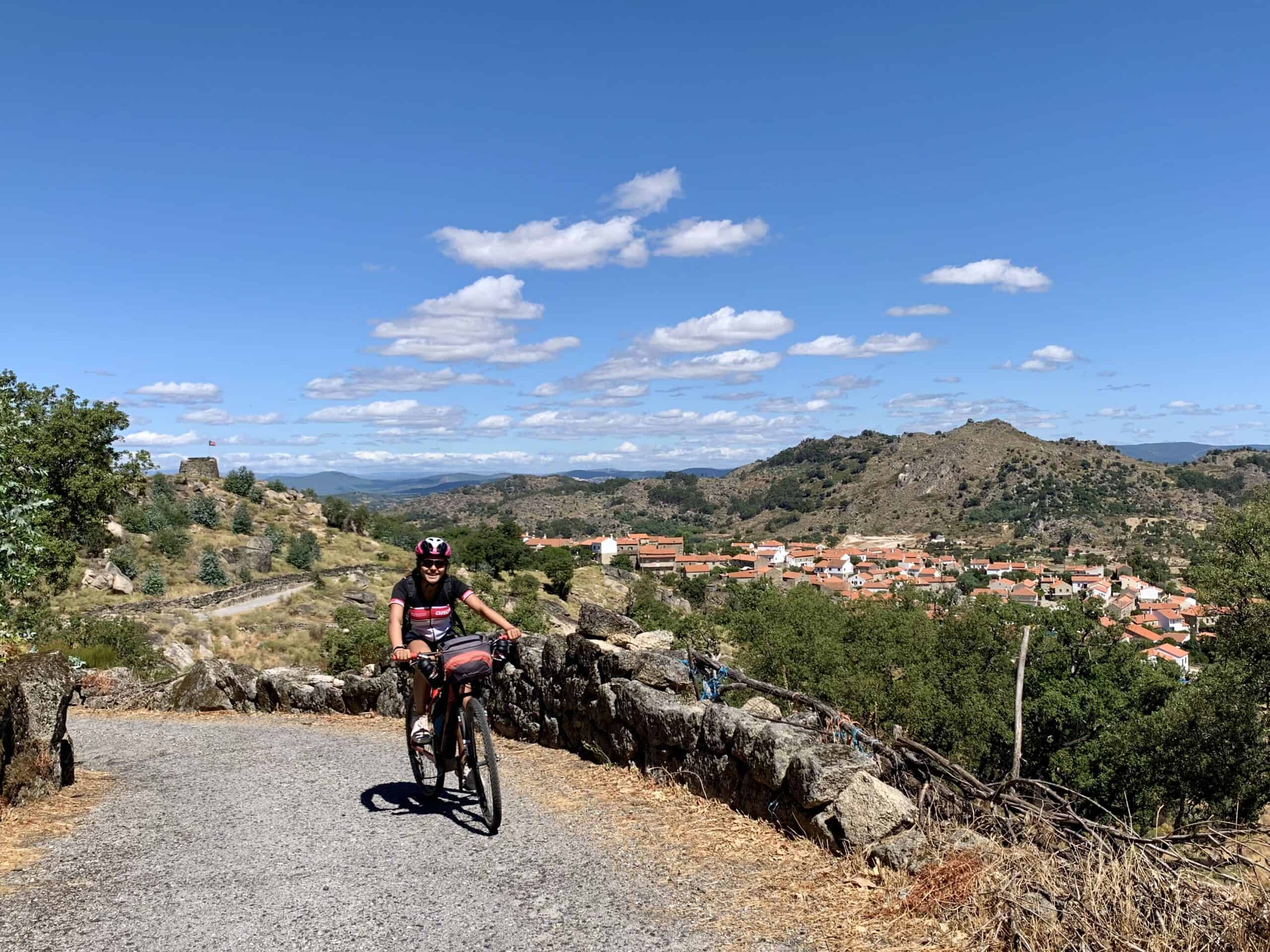 From the ancient vineyards of the Douro valley to the enchanting Serra da Estrela mountains, via the windswept Alentejo plains and seaside towns of the Algarve. The beauty of exploring Portugal on two wheels is in its slowness – unhurried travel gives you the freedom to immerse yourself in your surroundings and to explore the country’s incredible cultural heritage and unique traditions. Whether you’re looking for a point-to-point self-guided cycle touring holiday, maybe you’d like to include a couple of guided road bike rides during your family holiday, or if you’d like to explore off-road, riding natural and man-made singletrack – whatever your preference, we have the bikes, routes and rides to fit all abilities and fitness levels.
From the ancient vineyards of the Douro valley to the enchanting Serra da Estrela mountains, via the windswept Alentejo plains and seaside towns of the Algarve. The beauty of exploring Portugal on two wheels is in its slowness – unhurried travel gives you the freedom to immerse yourself in your surroundings and to explore the country’s incredible cultural heritage and unique traditions. Whether you’re looking for a point-to-point self-guided cycle touring holiday, maybe you’d like to include a couple of guided road bike rides during your family holiday, or if you’d like to explore off-road, riding natural and man-made singletrack – whatever your preference, we have the bikes, routes and rides to fit all abilities and fitness levels.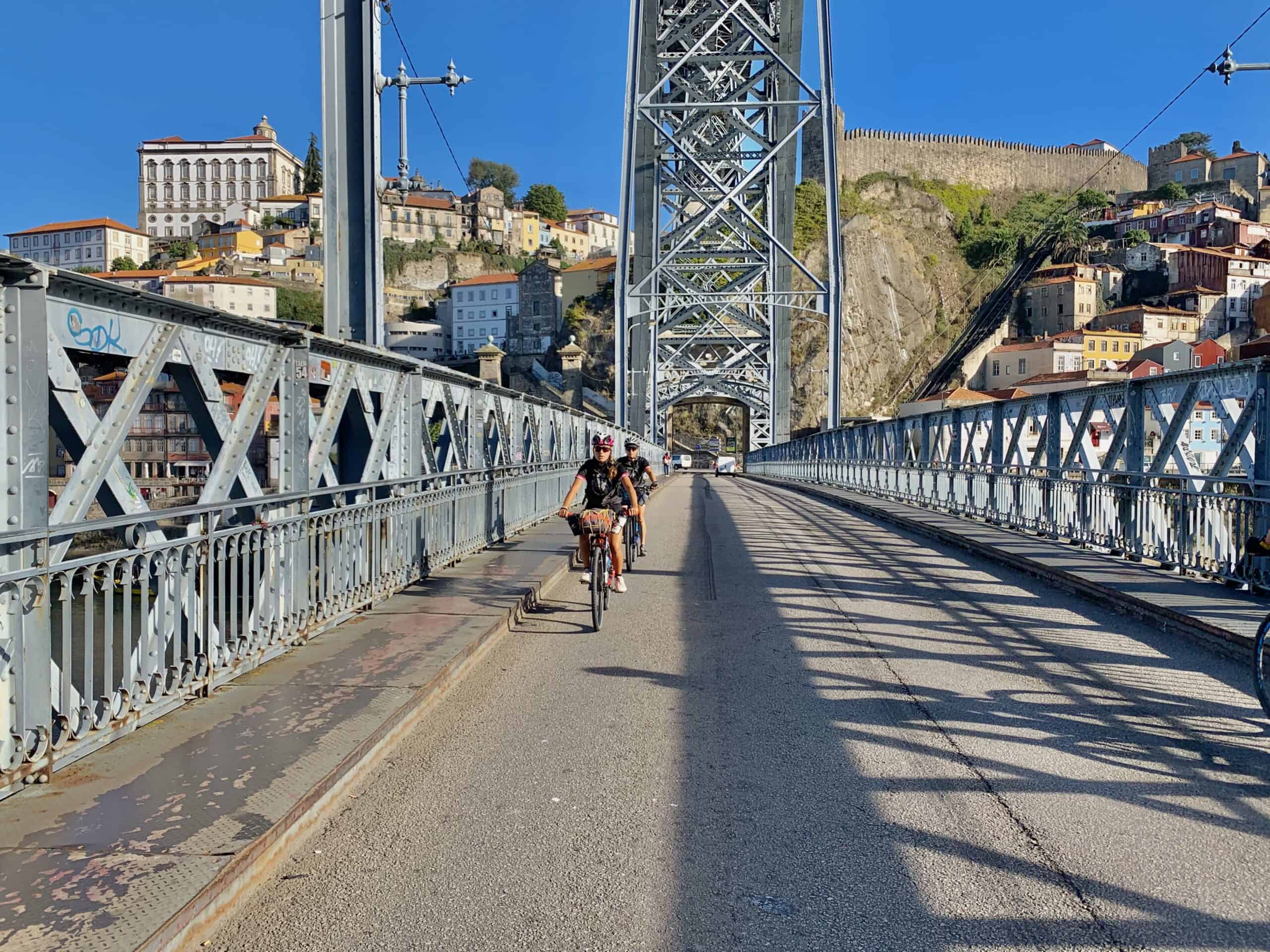
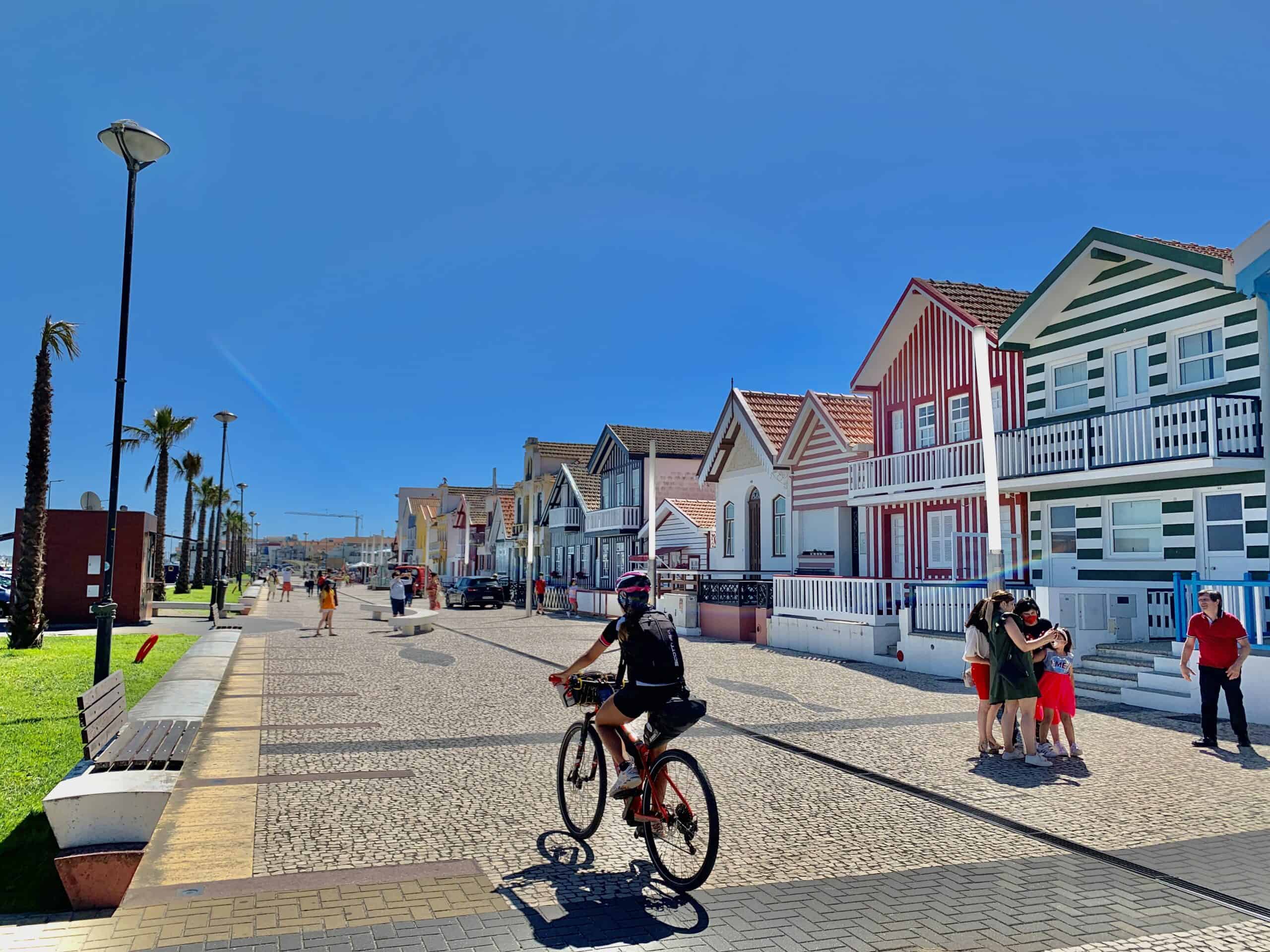 In the north, you might like to ride from the bustling city of Porto, via the Furadouro coast and the Sao Jacinto Dunes Natural Reserve to the pretty town of Aveiro – ‘the Venice of Portugal’, famous for its art deco architecture, canals and colourful boats. Take a detour to the remote beaches at Praia do Areao, Mira and Palheirao for a dip in the warm Atlantic, followed by rest and recuperation in the historic university city of Coimbra.
In the north, you might like to ride from the bustling city of Porto, via the Furadouro coast and the Sao Jacinto Dunes Natural Reserve to the pretty town of Aveiro – ‘the Venice of Portugal’, famous for its art deco architecture, canals and colourful boats. Take a detour to the remote beaches at Praia do Areao, Mira and Palheirao for a dip in the warm Atlantic, followed by rest and recuperation in the historic university city of Coimbra.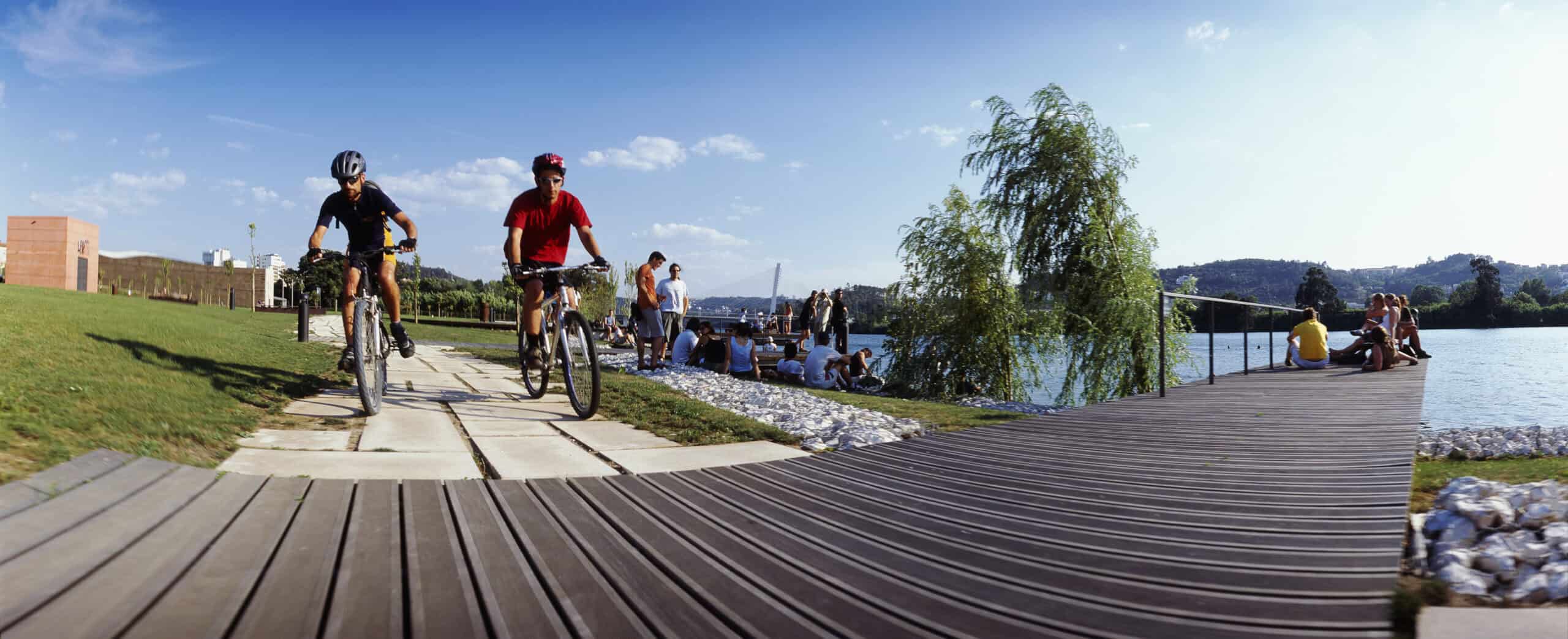 For experienced road bikers and cycle tourers, you could extend your route from Coimbra, via the pretty medieval hamlet of Obidos, to the palace town of Sintra – the favoured summer retreat for Portugal’s royal dynasties, famous for its decorative palaces and eclectic architecture.
For experienced road bikers and cycle tourers, you could extend your route from Coimbra, via the pretty medieval hamlet of Obidos, to the palace town of Sintra – the favoured summer retreat for Portugal’s royal dynasties, famous for its decorative palaces and eclectic architecture.
Sintra’s also home to a complex network of off-road mountain biking trails – combining easy fireroads with natural singletrack and technical man-made features, criss-crossing the high granite peak at the centre of the Parque Natural de Sintra. Uplifts used to be popular but e-bikes are slowly taking over, and most rides end at the west coast beach of Praia do Guincho for fresh clams and cold beers.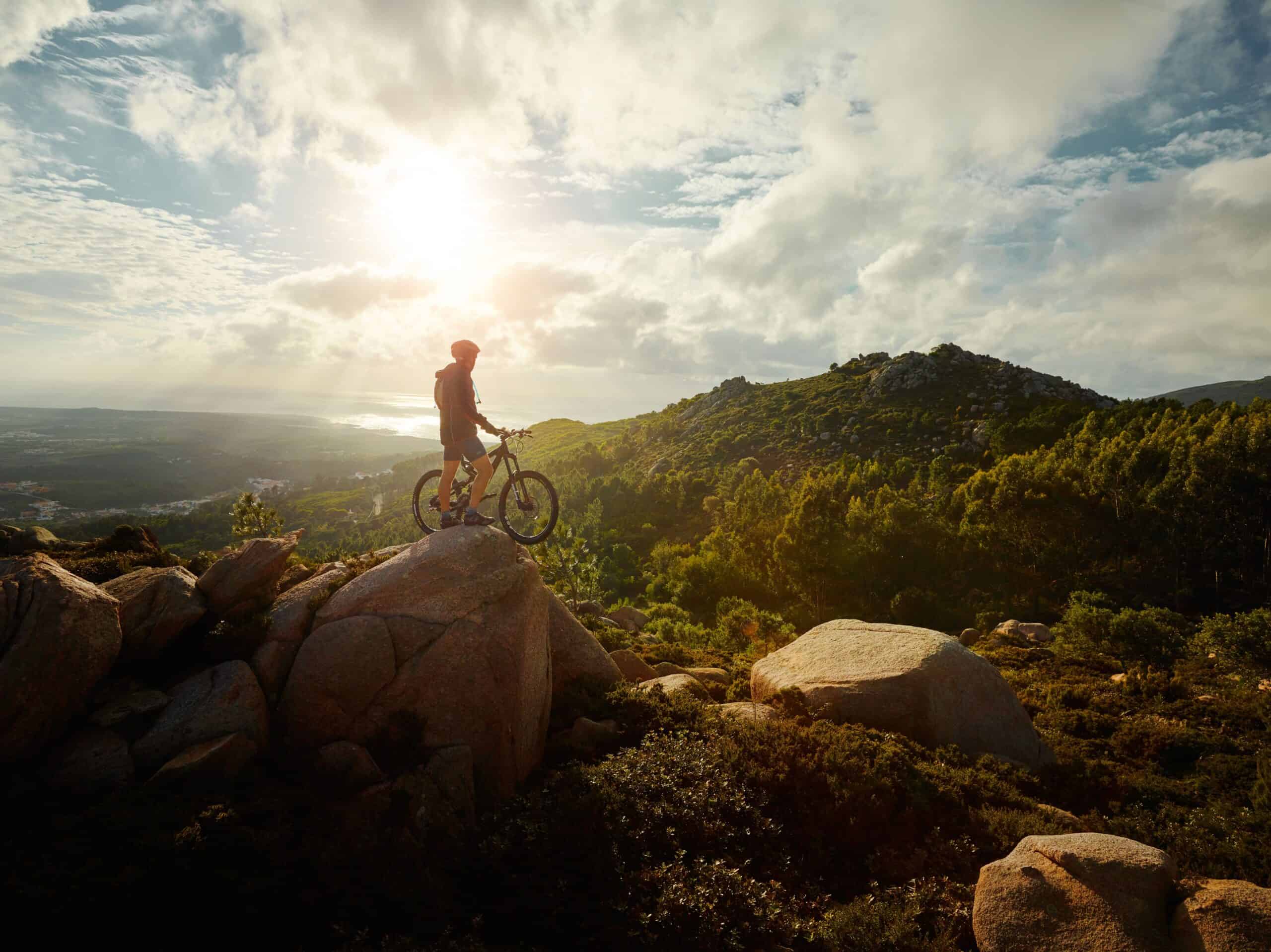
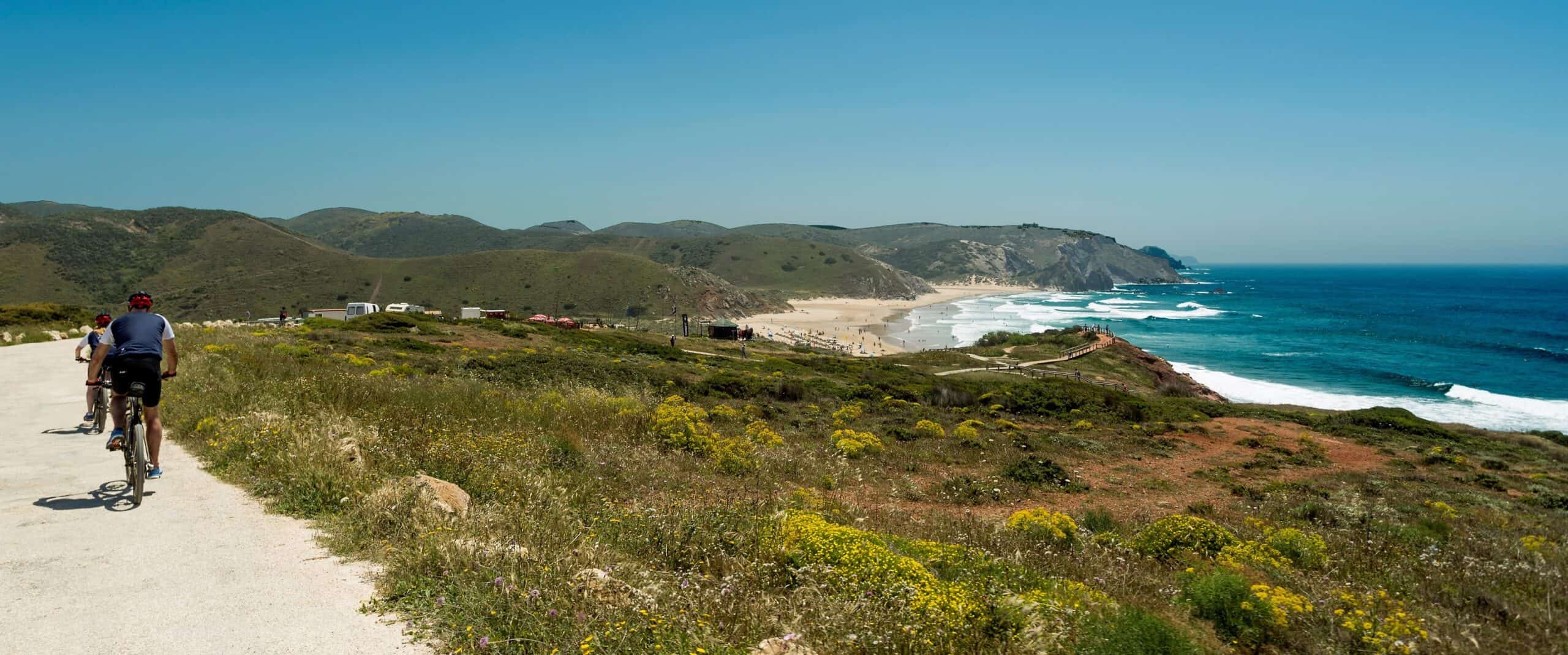 Away from the coast, you might prefer to explore the Douro Valley, Europe’s oldest demarked wine region. Wine has been produced here for over two-thousand years and there’s no better way to explore the ancient terraces and isolated quintas of this stunning landscape than by bike. It’s also challenging riding – the old railway to Vila Real provides a nice warm up before the main event: the undulating roads of the Douro river valley. With around 800 to 1000m of climbing each day, you’ll pass through the historic wine estates, quant villages and archaeological landmarks that make this region of Portugal unique.
Away from the coast, you might prefer to explore the Douro Valley, Europe’s oldest demarked wine region. Wine has been produced here for over two-thousand years and there’s no better way to explore the ancient terraces and isolated quintas of this stunning landscape than by bike. It’s also challenging riding – the old railway to Vila Real provides a nice warm up before the main event: the undulating roads of the Douro river valley. With around 800 to 1000m of climbing each day, you’ll pass through the historic wine estates, quant villages and archaeological landmarks that make this region of Portugal unique.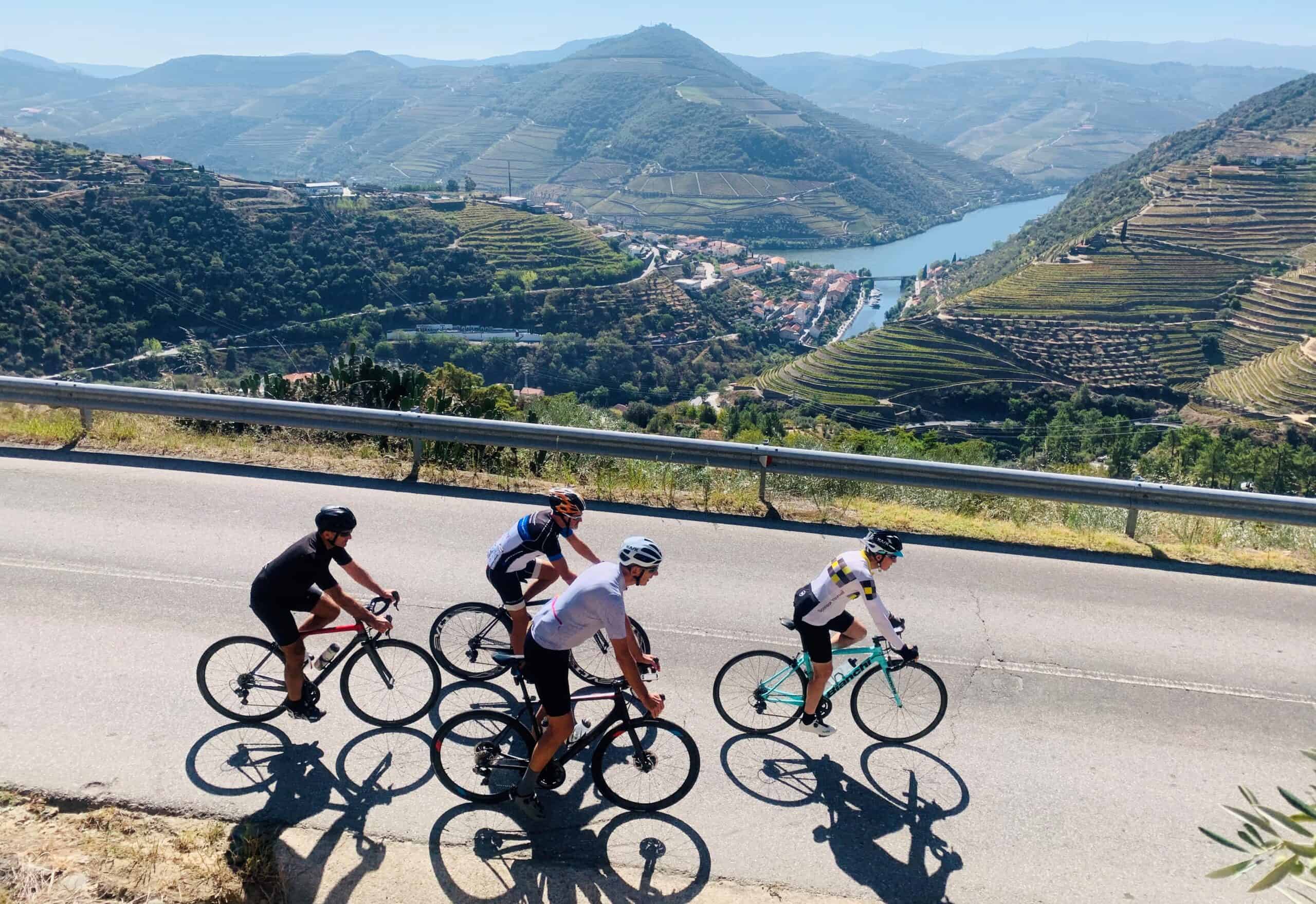 South of the capital Lisbon, the sparsely populated Alentejo region is relatively unknown outside of Portugal. It’s an agricultural heartland of gentle rolling hills, olive groves and tranquil rural hamlets. It’s also dotted with ancient megalithic sites, roman archaeological landmarks, preserved Moorish castles and medieval convents – castles and convents which have often been rescued from ruin and sympathetically converted into some of Portugal’s most interesting and unusual rural hotels.
South of the capital Lisbon, the sparsely populated Alentejo region is relatively unknown outside of Portugal. It’s an agricultural heartland of gentle rolling hills, olive groves and tranquil rural hamlets. It’s also dotted with ancient megalithic sites, roman archaeological landmarks, preserved Moorish castles and medieval convents – castles and convents which have often been rescued from ruin and sympathetically converted into some of Portugal’s most interesting and unusual rural hotels.
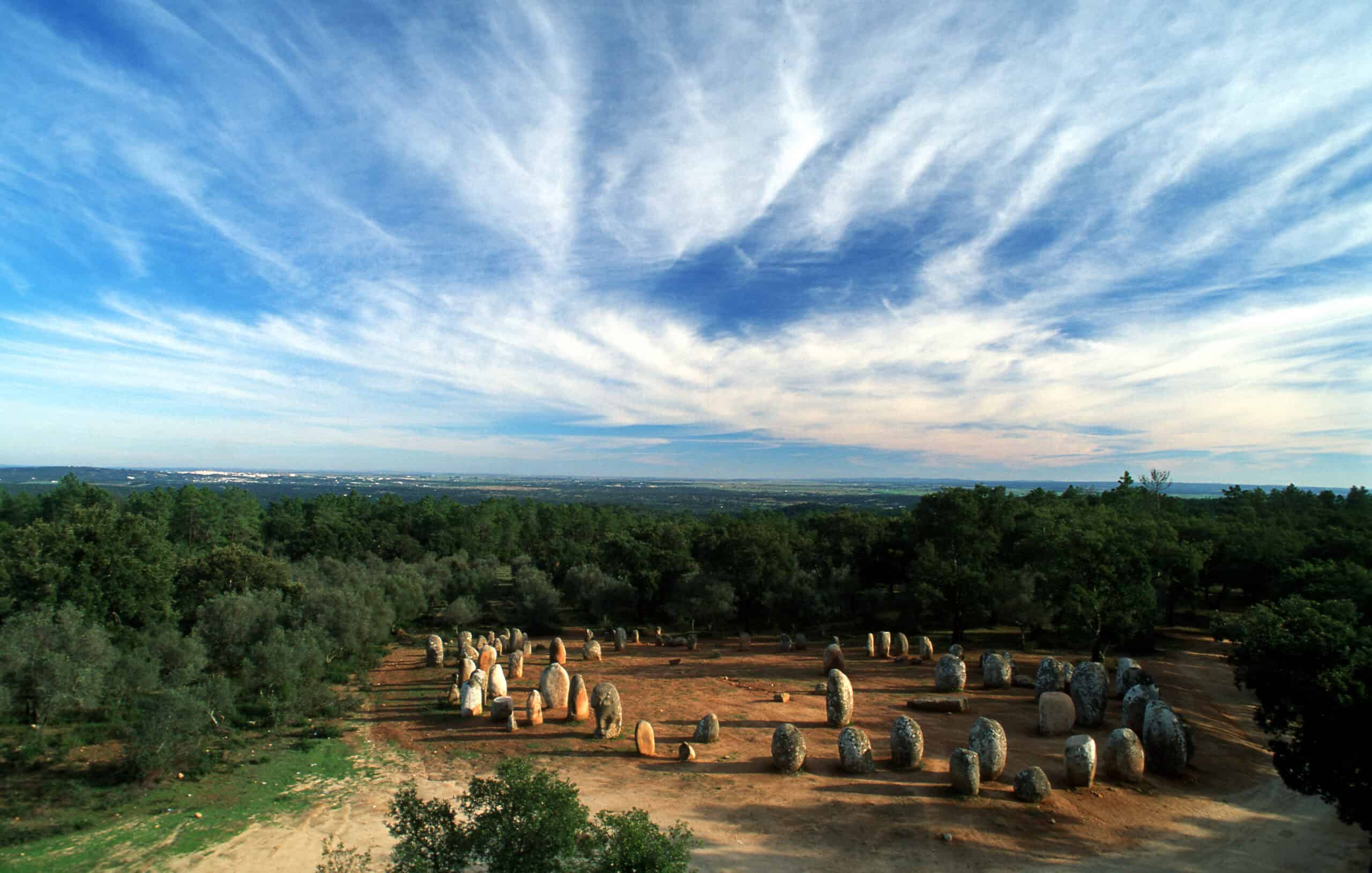
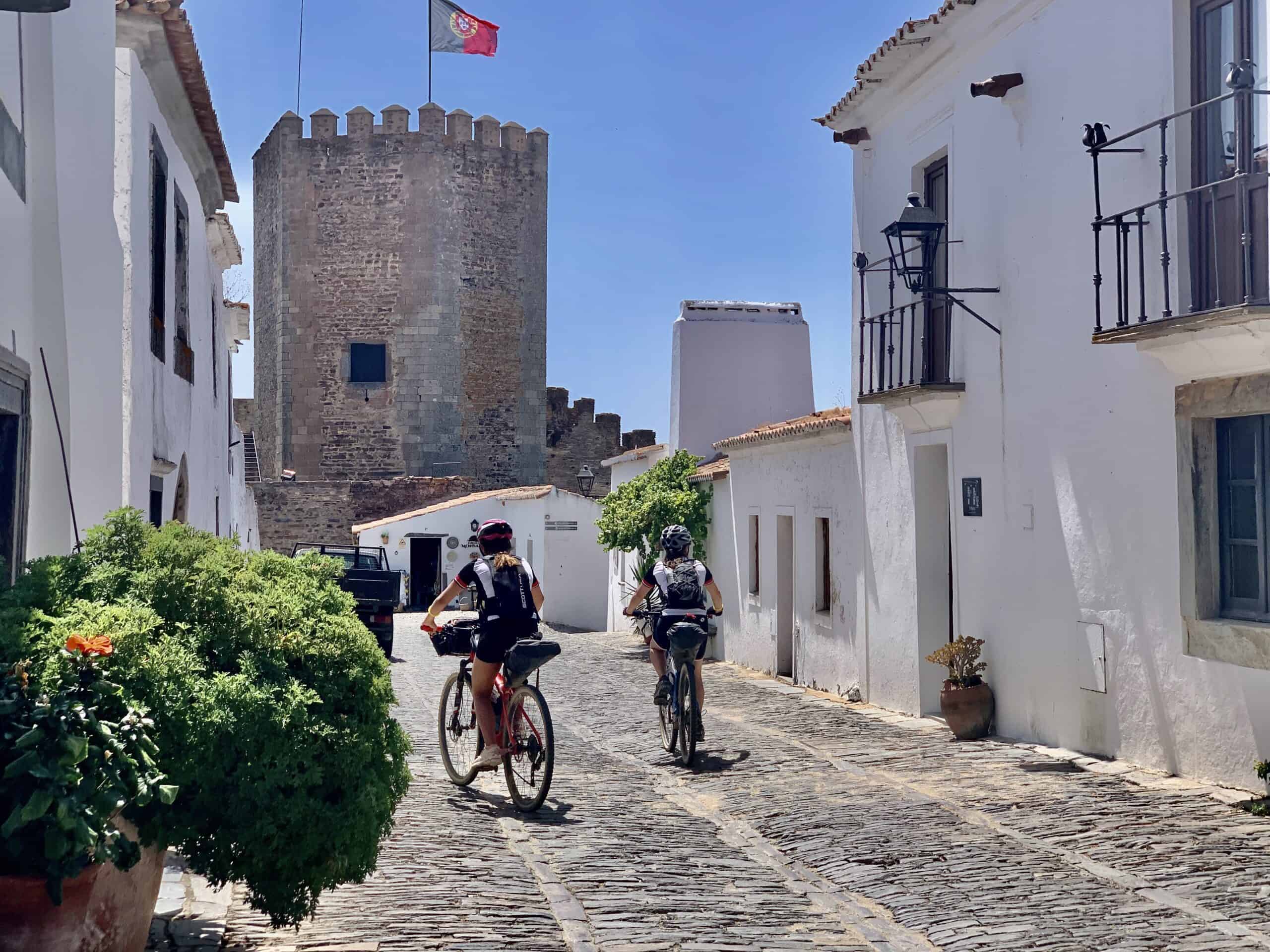 On Alentejo’s west coast, pristine sands stretch for over 70km from Troia to Sagres, and the region’s Rota Vicentina trail network provides cyclists with over 1000km of touring and off-road biking routes.
On Alentejo’s west coast, pristine sands stretch for over 70km from Troia to Sagres, and the region’s Rota Vicentina trail network provides cyclists with over 1000km of touring and off-road biking routes.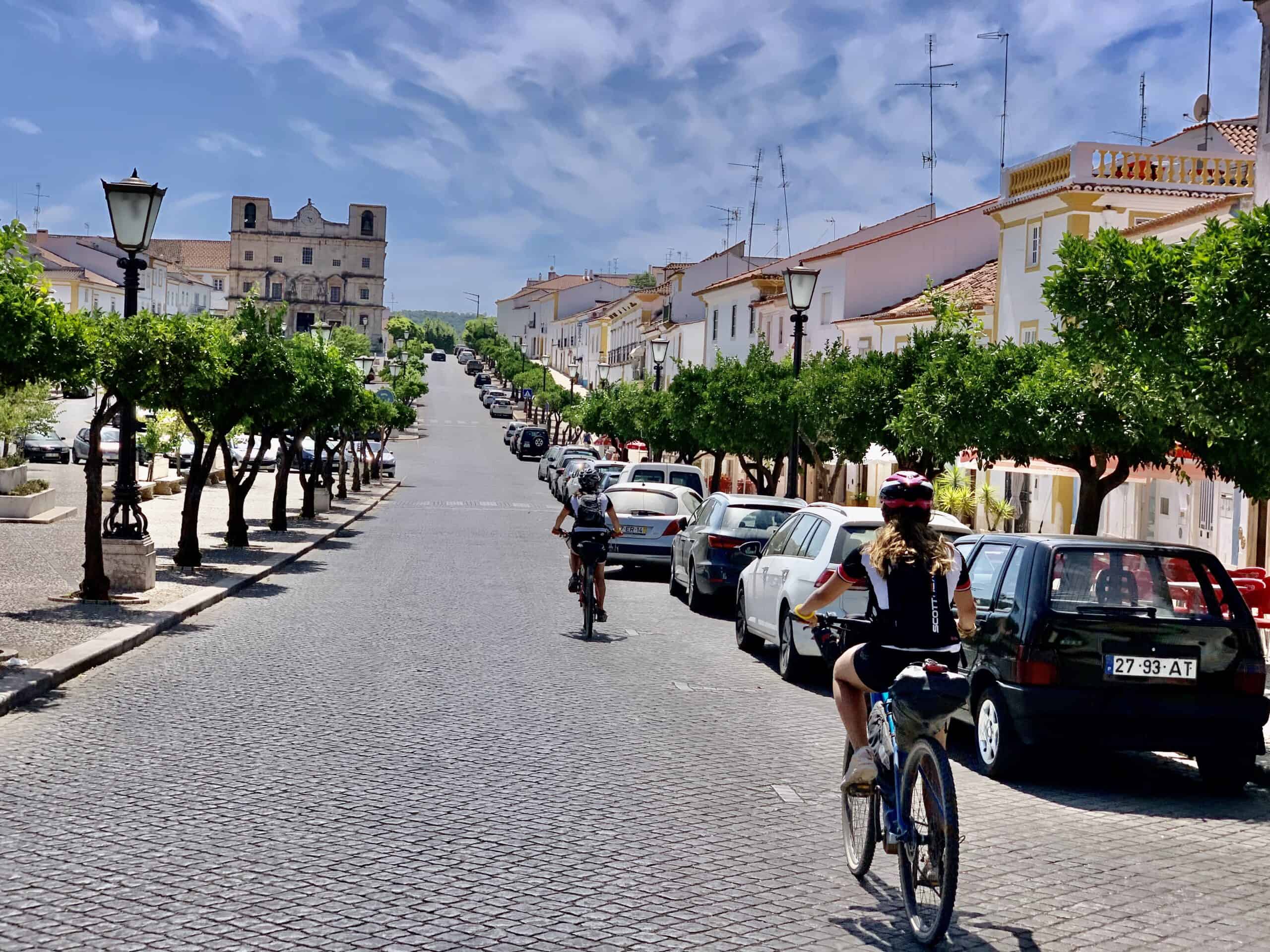 Your start point is usually the old industrial city of Setubal which lies on the northern edge of the Sado estuary. Despite its proximity to Lisbon, the city is often overlooked by tourists – once home to the Lisnave shipyards, Setubal has reinvented itself in recent times as the gateway to the Alentejo and Troia Peninsula.
Your start point is usually the old industrial city of Setubal which lies on the northern edge of the Sado estuary. Despite its proximity to Lisbon, the city is often overlooked by tourists – once home to the Lisnave shipyards, Setubal has reinvented itself in recent times as the gateway to the Alentejo and Troia Peninsula.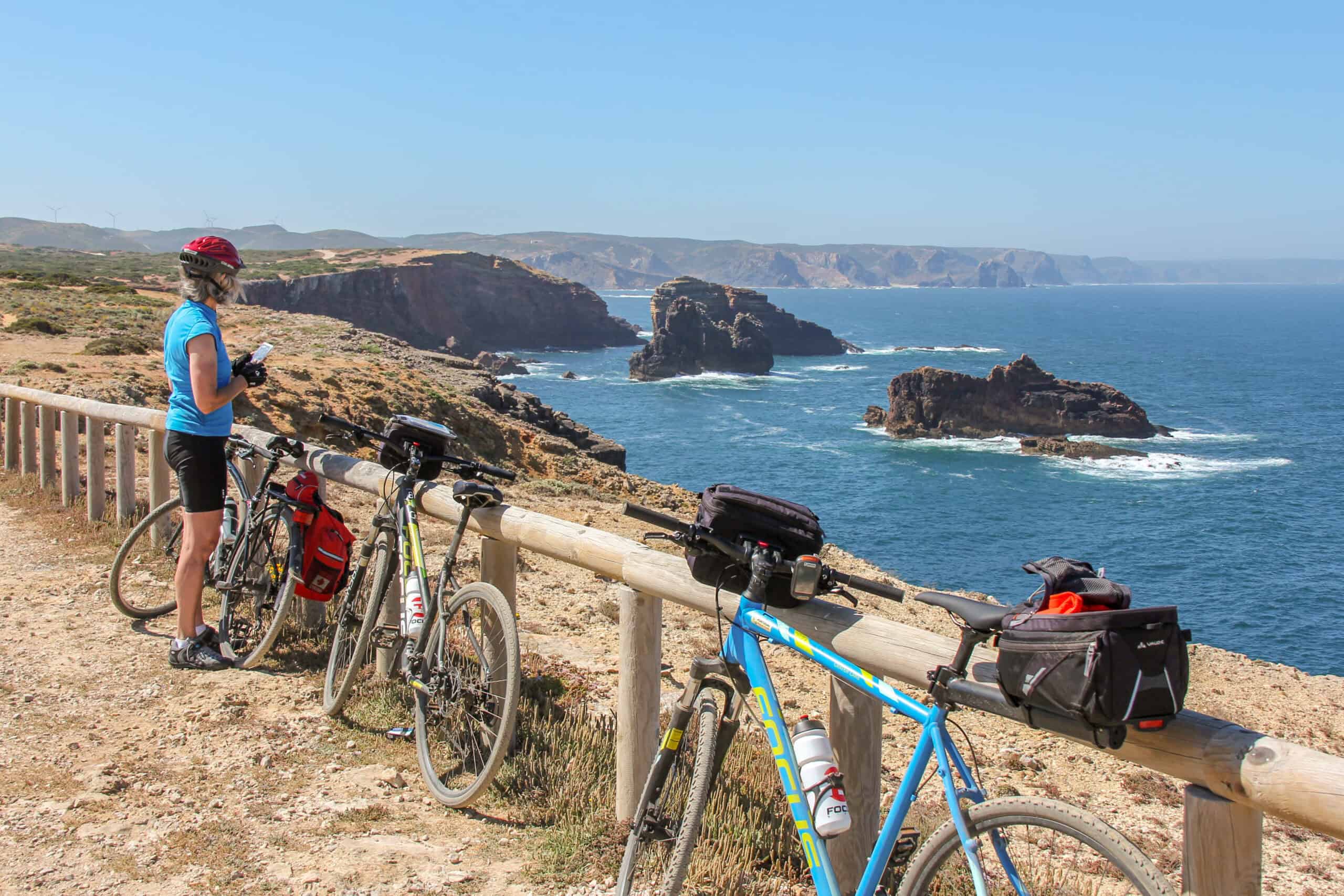 Heading south, you’ll follow a landscape of hidden beaches and monolithic sea cliffs. With the wild Atlantic Ocean as a constant companion on your right-hand side, you’ll eventually reach the-end-of-the-world at Cabo de Sao Vicente, Portugal’s southern tip. The nearby town of Sagres is a welcome rest point and has a friendly, old-Algarve atmosphere. The meandering Algarve coast leads you to your end point in Lagos – its historic old town is a medieval maze of traditional townhouses and ornate churches, and the secluded beaches at Praia Dona Ana and Praia do Camilo are welcome reward for your efforts on two wheels.
Heading south, you’ll follow a landscape of hidden beaches and monolithic sea cliffs. With the wild Atlantic Ocean as a constant companion on your right-hand side, you’ll eventually reach the-end-of-the-world at Cabo de Sao Vicente, Portugal’s southern tip. The nearby town of Sagres is a welcome rest point and has a friendly, old-Algarve atmosphere. The meandering Algarve coast leads you to your end point in Lagos – its historic old town is a medieval maze of traditional townhouses and ornate churches, and the secluded beaches at Praia Dona Ana and Praia do Camilo are welcome reward for your efforts on two wheels.
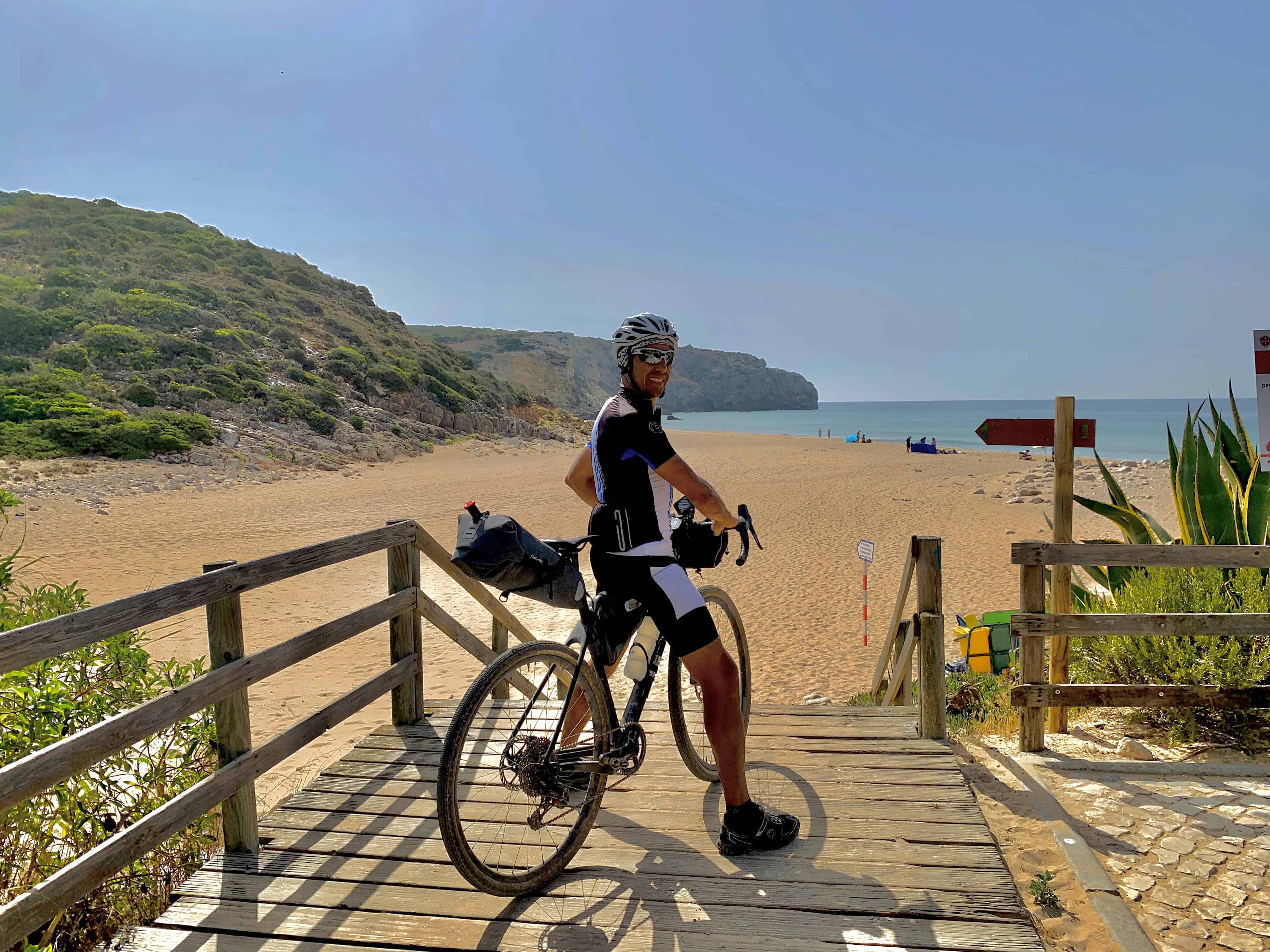









Follow us online